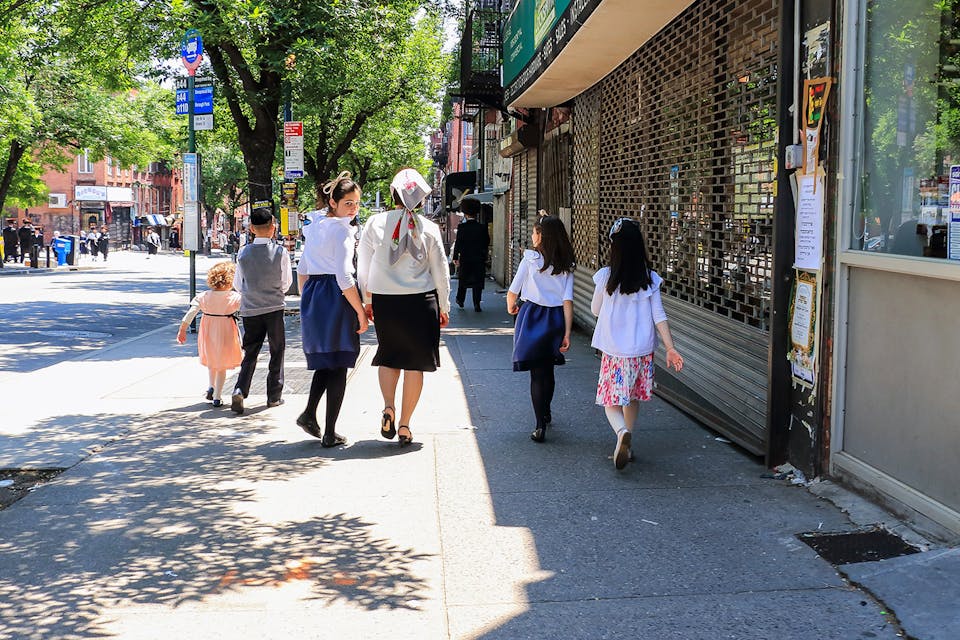
August 10, 2022
Is Yeshivish a New Jewish Language?
Some have claimed that the hybrid dialect is on its way to becoming a new Yiddish, as different from 21st-century English as Yiddish is from medieval German. Are they right?
“Where are you holding?” asked the email I received from an English-language editor at a Jerusalem publishing house with which I was working on a project. Although English was the editor’s native language, she did not phrase her question in normal English. I recognized it as “Yeshivish,” a form of English, peppered with rabbinic Hebrew and Aramaic, and with Yiddish calque expressions, that is spoken today in the world of yeshiva students, their families, and parts of the Jewish Orthodox community. The Yiddish verb haltn has the primary meaning of “to hold,” and the editor’s question was a literal translation of vu halt ir, whose idiomatic sense, often regarding someone’s progress in a talmudic or rabbinic text, is “Where are you up to?” or “How far have you gotten?”
Yet while the editor was writing in Yeshivish, what struck me was that she did not seem to realize she was doing so. Generally, Yeshivish speakers use it only within their own community. There is not much point, after all, in saying things like “I’m not dealing with the question gufa” (in itself), or “Let me put it to you poshut” (simply), if you know your interlocutor is not going to understand you. Theoretically, the same should have been true for “Where are you holding?” But although the editor had no reason to believe that I knew or spoke Yeshivish, she apparently used this phrase anyway because she was under the impression that it was ordinary English, or at least, ordinary Jewish English.
Could she have been right? Are we in a new stage in the development of Yeshivish, one in which it begins to spread beyond the confines of its original speech community, so that before too long non-Orthodox Jews like myself will be saying things like “I’m holding halfway through Pride and Prejudice,” or “Where is he holding in medical school?” And to pose an even more far-reaching question: is Yeshivish, as some have claimed, on its way to becoming a new Yiddish, a form of American (and British) Jewish speech as different from standard 21st-century English as Yiddish is from the medieval German it sprang from? Are we witnessing the birth, right under our noses, of a new Jewish language?